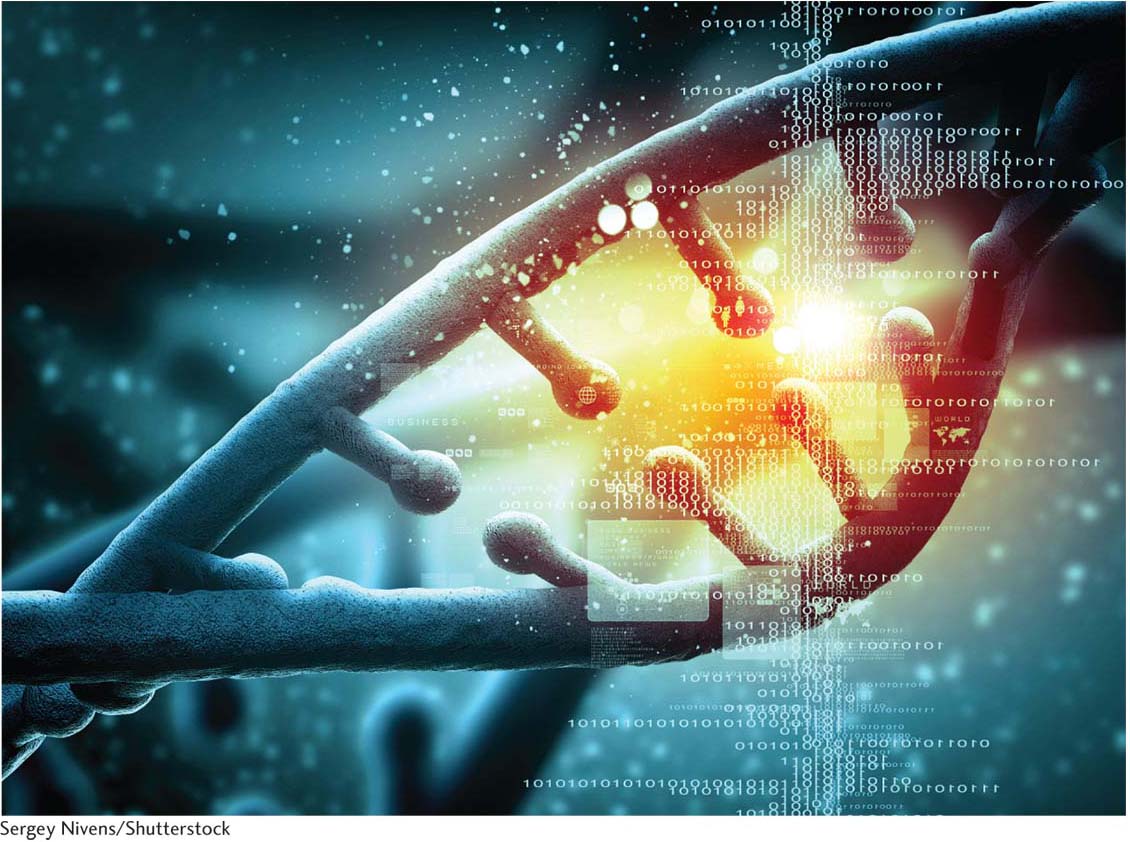Chapter Introduction
The Genetics
Revolution
CHAPTER
1
LEARNING OUTCOMES
After completing this chapter, you will be able to
Describe the way in which modern genetics developed.
List the main cellular constituents involved in gene expression and action.
Give some examples of how genetics has influenced modern medicine, agriculture, and evolution.

Genetics is a form of information science. Geneticists seek to understand the rules that govern the transmission of genetic information at three levels—
The science of genetics was born just over 100 years ago. Since that time, genetics has profoundly changed our understanding of life, from the level of the individual cell to that of a population of organisms evolving over millions of years. In 1900, William Bateson, a prominent British biologist, wrote presciently that an “exact determination of the laws of heredity will probably work more change in man’s outlook on the world, and in his power over nature, than any other advance in natural knowledge that can be foreseen.” Throughout this text, you will see the realization of Bateson’s prediction. Genetics has driven a revolution in both the biological sciences and society in general.
In this first chapter, we will look back briefly at the history of genetics, and in doing so, we will review some of the basic concepts of genetics that were discovered over the last 100 years. After that, we will look at a few examples of how genetic analysis is being applied to critical problems in biology, agriculture, and human health today. You will see how contemporary research in genetics integrates concepts discovered decades ago with recent technological advances. You will see that genetics today is a dynamic field of investigation in which new discoveries are continually advancing our understanding of the biological world.